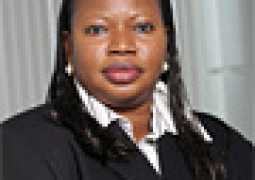The event was designed to trigger discussions on the progress, challenges and the way forward in the implementation of the National Agricultural Land and Water Management Development Project (Nema), the Participatory Integrated Watershed Management Project (PIWAMP), and the SLMP to support Government’s priority to transform the largely rain-fed production systems into more productive and sustainable market-oriented agriculture over the year.
Giving an overview of the tripartite forum, the coordinator of the projects, Momodou Lamin Gassama, said the participants to the meeting will report on the areas much success was registered and then plan how the less concentrated areas will be captured as soon as possible.
According to him, the areas of intervention are wide and different, which will replicate the types of response from stakeholders of the various farming regions of the country.
The Deputy Governor of the Lower River region, Abu Njie, reminded the participants that they were required to allow their inputs in the assessment and evaluation of the performance of the various agricultural projects at their disposal.
He urged them to incorporate all the crosscutting issues into paper and go further to disseminate it to the communities they represent at the gathering.
The deputy permanent secretary, Ministry of Agriculture, Asheme Cole, described the meeting as a face-to-face exercise between project partners and the beneficiaries who are mainly farmers.
He noted that it was the right approach at the right time to table the ingredients of the forum for it to serve as a tool for farmers well ahead of the next season.
He expressed hope that his ministry would obtain a combined report of the situation of each of the three projects based on realities on the ground and recommendations for intervention.
During the sessions, Jerro Manneh, monitoring and evaluation officer for PIWAMP, said the local communities are incorporated into the high-level discussion because they form the poor smallholders that are dependent on traditional upland crops and lowland rice cultivation as their main source of livelihood, who are the prime beneficiaries of the SLMP project.
He explained that the primary target group in the lowlands will be women, whereas for the uplands the focus will be on conservation farming and men, women and the youth.
Similarly Ensa Colley, Planning, Monitoring and Evaluation Officer for the Nema project, recalled that the seven-year project was designed to build on the achievements and experience of earlier IFAD-supported projects in the same sector.
These projects include the ongoing PIWAMP co-funded by AfDB and GEF, the Rural Finance Project (RFP) and the LHDP.


